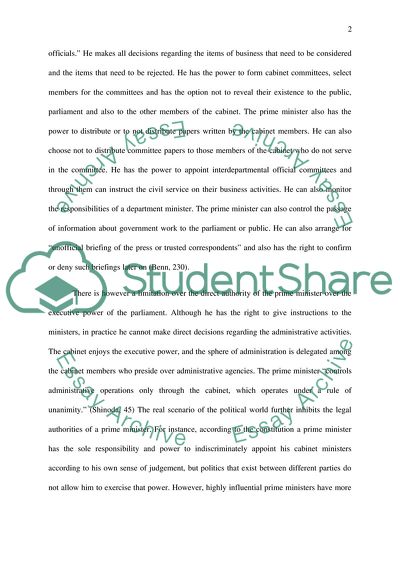Cite this document
(Powers of Prime Minister Essay Example | Topics and Well Written Essays - 1750 words, n.d.)
Powers of Prime Minister Essay Example | Topics and Well Written Essays - 1750 words. https://studentshare.org/history/1791888-course-international-relations
Powers of Prime Minister Essay Example | Topics and Well Written Essays - 1750 words. https://studentshare.org/history/1791888-course-international-relations
(Powers of Prime Minister Essay Example | Topics and Well Written Essays - 1750 Words)
Powers of Prime Minister Essay Example | Topics and Well Written Essays - 1750 Words. https://studentshare.org/history/1791888-course-international-relations.
Powers of Prime Minister Essay Example | Topics and Well Written Essays - 1750 Words. https://studentshare.org/history/1791888-course-international-relations.
“Powers of Prime Minister Essay Example | Topics and Well Written Essays - 1750 Words”. https://studentshare.org/history/1791888-course-international-relations.


